Sustainable Travel Tips and Nature Reserves
Oman, a country of diverse landscapes and rich cultural heritage, is increasingly becoming a destination for eco-conscious travelers. With its pristine coastlines, rugged mountains, expansive deserts, and unique wildlife, Oman offers numerous opportunities for sustainable tourism that respects both the environment and local communities. This guide explores how to travel responsibly in Oman, highlighting nature reserves and providing tips to minimize your ecological footprint while experiencing the country’s natural beauty.

Understanding Eco-Tourism in Oman
Eco-tourism in Oman focuses on responsible travel to natural areas, conserving the environment, and improving the well-being of local people. By choosing eco-friendly accommodations, engaging in sustainable activities, and respecting local customs, travelers can contribute to the preservation of Oman’s natural and cultural resources.
Top Nature Reserves and Protected Areas
1. Ras Al Jinz Turtle Reserve
Overview: Located on the easternmost point of the Arabian Peninsula, Ras Al Jinz is a vital nesting site for endangered green turtles.
Highlights:
- Turtle Watching: Guided tours offer the chance to observe turtles nesting and hatching in their natural habitat.
- Visitor Center: Educational exhibits about marine conservation and the life cycle of turtles.
- Conservation Efforts: The reserve is dedicated to protecting turtle populations through research and public awareness.
Eco-Tips:
- Follow Guidelines: Adhere to the reserve’s rules to minimize disturbance to the turtles.
- No Flash Photography: Avoid using flash to protect the turtles’ sensitive eyes.
.jpg)
2. Daymaniyat Islands Nature Reserve
Overview: An archipelago of nine islands off the coast of Muscat, the Daymaniyat Islands are a marine sanctuary known for their rich biodiversity.
Highlights:
- Diving and Snorkeling: Explore vibrant coral reefs teeming with marine life, including whale sharks, turtles, and colorful fish.
- Bird Watching: The islands are a nesting site for various migratory birds.
- Pristine Beaches: Uninhabited islands offering serene beach experiences.
Eco-Tips:
- Permits Required: Obtain necessary permissions to visit; this helps regulate the number of visitors.
- Leave No Trace: Take all rubbish with you to protect the fragile ecosystem.
- Reef-Safe Sunscreen: Use environmentally friendly sunscreen to prevent coral damage.

3. Al Saleel National Park
Overview: Located in the Al Sharqiyah region, Al Saleel National Park is a protected area featuring acacia woodlands and home to rare wildlife.
Highlights:
- Wildlife Spotting: Chance to see Arabian gazelles, wild cats, and various bird species.
- Natural Environment: A representation of Oman’s unique desert ecosystem.
Eco-Tips:
- Stay on Designated Paths: Protect plant life and animal habitats by not straying off trails.
- Quiet Observation: Minimize noise to increase the chances of wildlife encounters without causing stress to animals.

4. Jebel Samhan Nature Reserve
Overview: Situated in the Dhofar region, Jebel Samhan is a mountainous area with deep canyons and a plateau that rises over 2,000 meters.
Highlights:
- Endangered Species: Home to the Arabian leopard, Nubian ibex, and hyenas.
- Scenic Views: Offers breathtaking panoramas of the surrounding landscapes.
Eco-Tips:
- Guided Tours: Consider hiring local guides who are knowledgeable about the terrain and wildlife.
- No Littering: Ensure all waste is carried out to maintain the pristine environment.
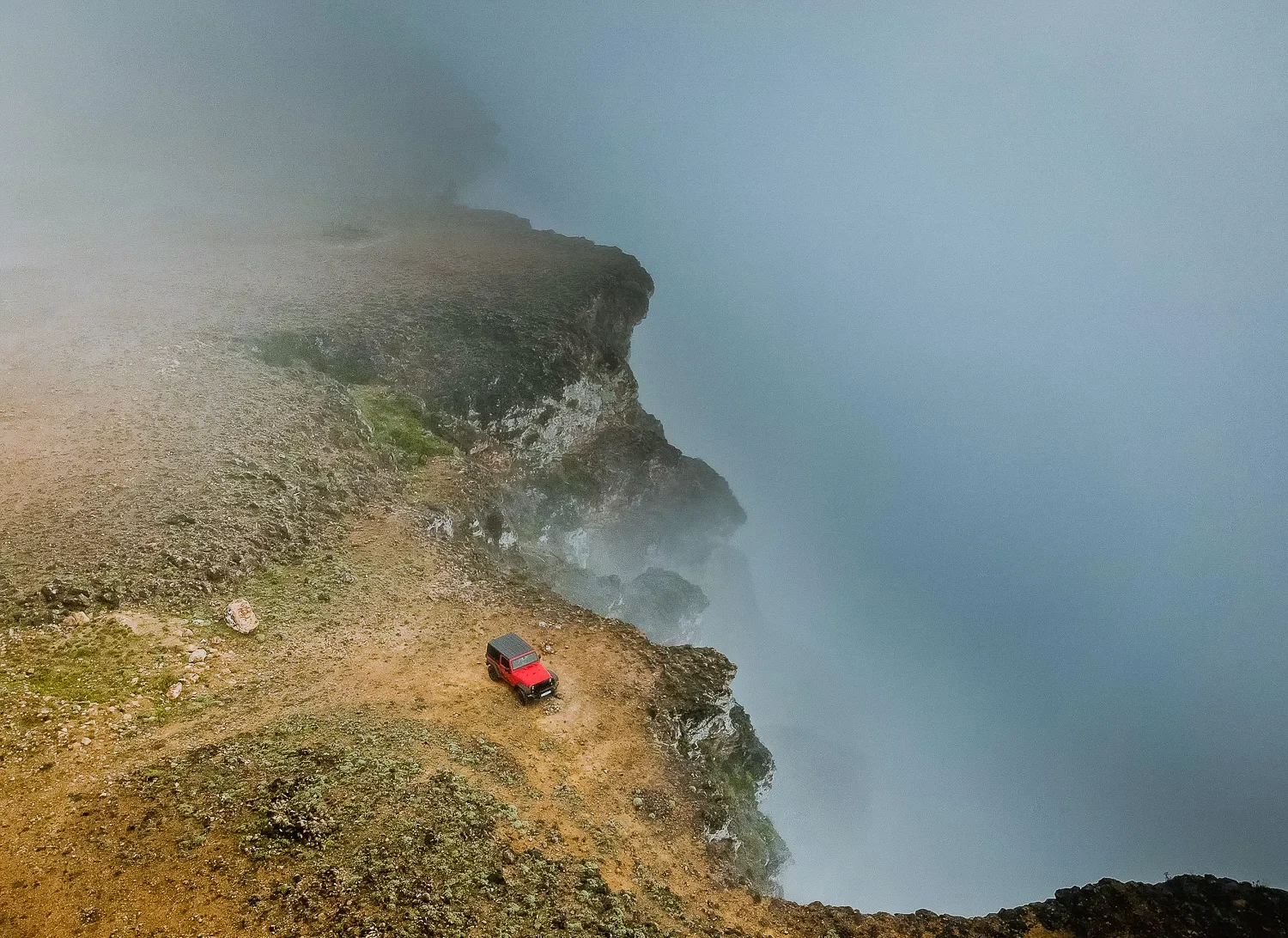
5. Khalouf Sand Dunes and Beach
Overview: A unique coastal area where dunes meet the sea, providing habitats for various species and stunning natural scenery.
Highlights:
- Bird Watching: Flamingos, eagles, and other migratory birds frequent the area.
- Marine Life: Dolphins and other sea creatures can often be spotted offshore.
Eco-Tips:
- Respect Wildlife: Observe animals from a distance without interfering with their natural behaviors.
- Sustainable Camping: If camping, use eco-friendly practices to minimize impact.
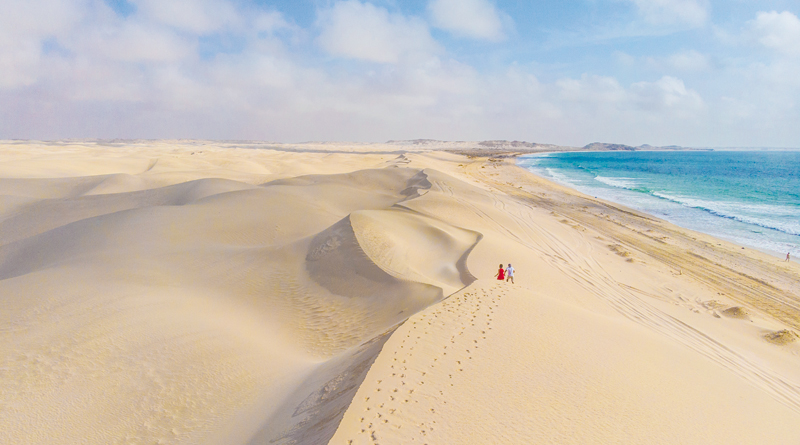
Sustainable Travel Tips
1. Choose Eco-Friendly Accommodations
- Green Certifications: Look for hotels and lodges that follow sustainable practices and have environmental certifications.
- Local Guesthouses: Staying in locally owned accommodations supports the community and reduces environmental impact.
2. Support Local Communities
- Buy Local Products: Purchase souvenirs and goods made by local artisans.
- Eat Local Cuisine: Dining at local restaurants reduces the carbon footprint associated with imported foods.
3. Reduce Waste
- Reusable Items: Bring a reusable water bottle, shopping bag, and utensils to minimize single-use plastics.
- Proper Disposal: Dispose of waste responsibly, recycling when possible.
4. Conserve Water and Energy
- Mindful Usage: Be conscious of water and electricity consumption, especially in desert regions where resources are scarce.
- Eco-Friendly Transportation: Use public transport, carpool, or choose fuel-efficient vehicles when possible.
5. Respect Local Culture and Environment
- Cultural Sensitivity: Dress modestly and follow local customs to show respect for Omani culture.
- Stay on Trails: Avoid damaging vegetation and disturbing wildlife by staying on established paths.
6. Wildlife Etiquette
- No Feeding: Do not feed wild animals, as it can disrupt their natural diet and behavior.
- Avoid Souvenirs Made from Wildlife: Do not purchase products made from endangered species or coral.
Eco-Friendly Activities in Oman
Hiking and Trekking
Explore Oman’s diverse landscapes on foot. Popular trails include those in the Al Hajar Mountains and around Jebel Akhdar. Always follow marked paths and respect the natural environment.
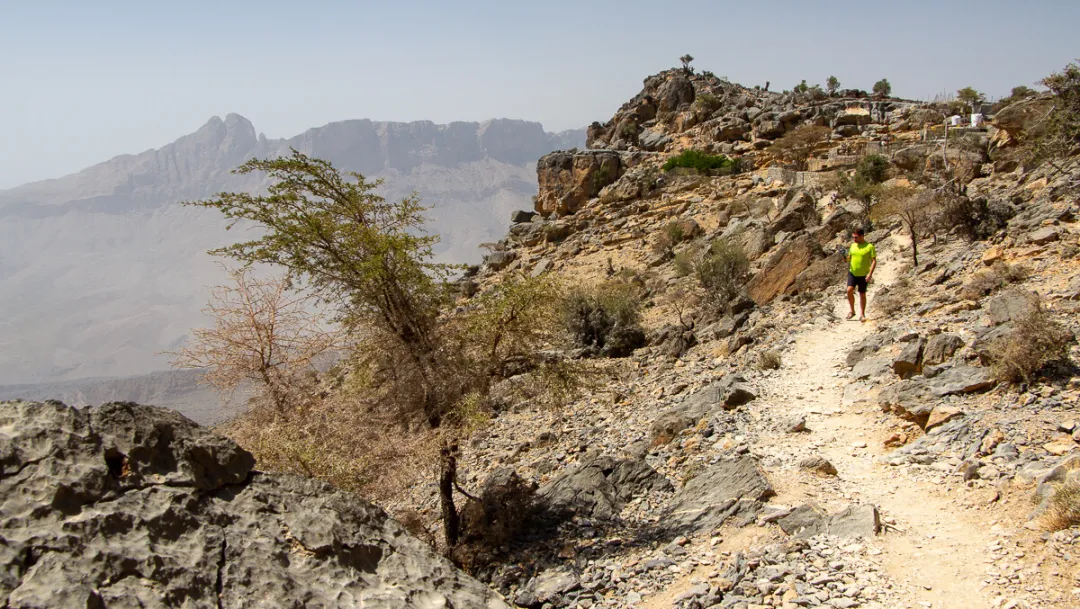
Kayaking and Paddleboarding
Enjoy low-impact water activities along Oman’s coastlines and in its fjords, particularly in the Musandam Peninsula.
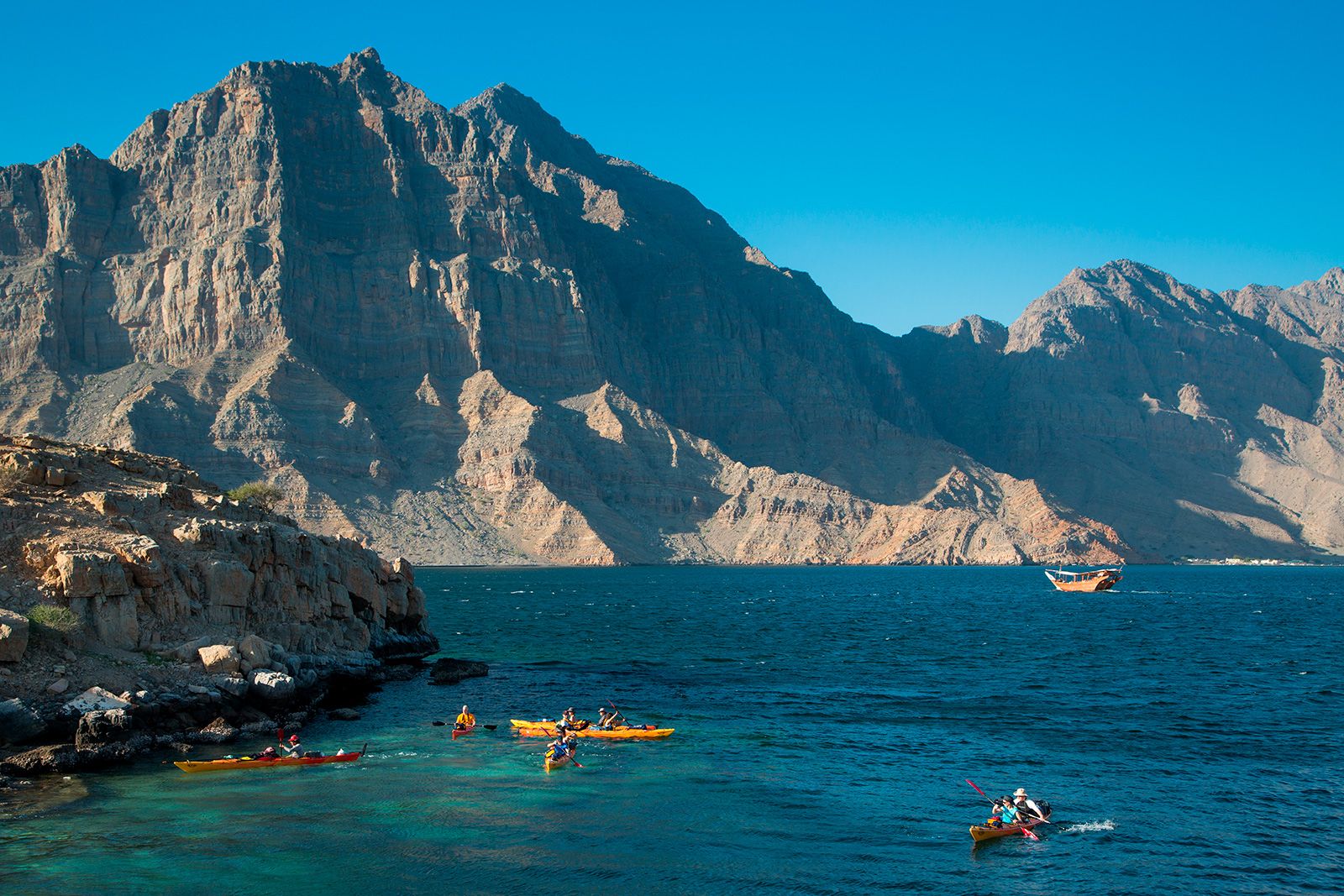
Bird Watching
Oman is a haven for bird enthusiasts, with over 500 species recorded. Wetlands like Qurm Nature Reserve in Muscat offer excellent opportunities.
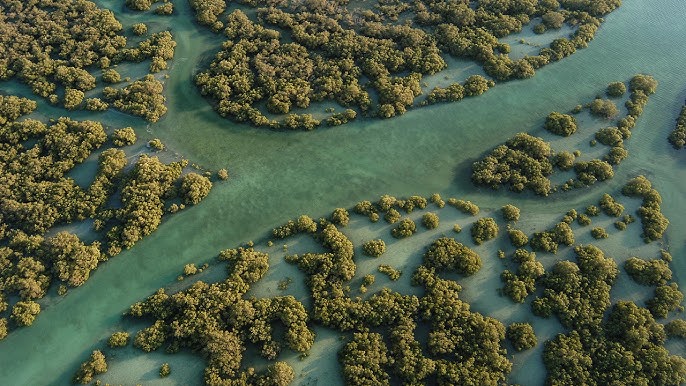
Cultural Tours
Participate in tours that focus on Oman’s heritage, supporting local guides and preserving traditional knowledge.
The Role of Responsible Tour Operators
When choosing tours and activities, select operators who prioritize sustainability:
- Environmental Policies: Operators should have clear policies on minimizing environmental impact.
- Community Involvement: They should support local communities and economies.
- Education: Tours should provide information about conservation and responsible practices.
Conclusion
Oman offers a wealth of natural beauty and cultural richness that can be enjoyed responsibly through eco-tourism. By making mindful choices and following sustainable travel practices, visitors can contribute to the preservation of Oman’s unique environments and support the well-being of local communities. Embracing eco-tourism not only enriches the travel experience but also ensures that future generations can continue to enjoy the wonders of this remarkable country.
We hope this guide inspires you to explore Oman sustainably. Safe travels and happy exploring!
